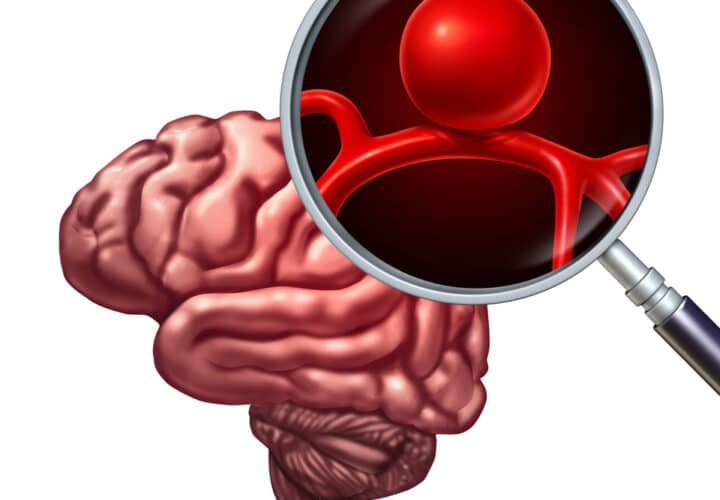The Alzheimer’s clinical trial success rate isn’t pretty: A 99.6 percent failure rate means there are only four approved drugs to treat Alzheimer’s on the market, and doctors say most of them are limited in terms of pushing back the symptoms of the disease. For newly diagnosed patients, the most frustrating and devastating thing to hear is that they should get their affairs in order because nothing can be done. Every patient and their loved one is asking the same question: Why don’t we have anything to treat Alzheimer’s disease?
It’s a complicated question, but scientists in the U.S. and Australia think they may have a clue as to why—and a plan for potential new treatments.
The researchers gathered data from many studies on the brain. They found that inflammation, which has long been thought of as a consequence of dementia as it progresses, could actually be the cause of the disease. The study showed that many of the genes associated with dementia are also responsible for how the body responds to inflammation. This goes against what is considered the “gold-standard” theory of Alzheimer’s disease: the beta-amyloid theory.
“For decades, scientists have thought that dementia and Alzheimer’s disease are caused by protein aggregates forming in the brain. But recent clinical trials of drugs that reduce the aggregates have failed,” said project leader Professor Robert Richards, from the University of Adelaide’s School of Biological Sciences. He worked on the study in collaboration with the U.S. National Institutes of Health.
Richards is right that clinical trials that clear the beta-amyloid plaques have failed. But so have trials that target inflammation with anti-inflammatories like ibuprofen. Clearly, solving the Alzheimer’s puzzle is not as simple as popping an Advil. Still, the genetic link that the team made implies that inflammation comes before beta-amyloid plaques—it’s the cause, rather than the response.
“We know that inflammation has different phases–early on it can be protective against a threat by actively degrading it, but if the threat is not removed, then persistent inflammation actually causes cell death,” says Professor Richards.
Richards said brain inflammation can act like a virus in the brain. “Inflammation is a very effective defense against foreign agents like viruses. But as we get older and accumulate mutations, our cells can make proteins and DNA products that mimic viruses, and these build up in the system,” he said.
“Normally, our cells barcode their own products to tell them apart from foreign agents. When these barcodes aren’t in place, our cells can’t properly distinguish ‘self’ and ‘non-self’ trigger molecules. The result is inflammation that escalates and spreads–hence the term auto-inflammatory disease.”
Beta-amyloid has been questioned in the past as possibly being the wrong target for drugs. John Hardy, one of the first to develop the beta-amyloid theory, still believes that anti-amyloid drugs are the key to Alzheimer’s—they just need to start earlier.
“One of the things that we are discussing now is when might amyloid therapies work, and I think that everybody believes—and it’s a belief, not a fact—that anti-amyloid drugs would work much earlier,” he said in an interview.
But Richards’ findings join evidence that inflammation could be what drives Alzheimer’s disease. We know, for example, that the lasting inflammatory response caused by traumatic brain injuries, like those sustained in football or accidents, leads to a much higher risk of dementia.
But while experts have known for a long time that inflammation is a piece of the puzzle, they aren’t sure how to target it.
“We simply do not understand enough about … mechanisms like inflammation to make them really good drug targets. Everybody is talking about inflammation, but nobody’s telling me what part of the inflammation we have to inactivate or activate or when you have to interfere,” said Bart de Strooper, a molecular biologist and the director of Dementia Research Institute at University College London, in an interview.
One thing is for certain: Diversifying how we approach curing Alzheimer’s disease is a necessity. Richards and his team hope to figure out how to reduce inflammation in the brain in order to reduce dementia.
“With this new understanding of the disease, we now need to test existing anti-inflammatory drugs for their effectiveness in treating dementia,” said Richards.
This study was published in the journal Human Molecular Genetics.

Amen!! Great article. If only the rest of AD research could catch on.
The drugs currently on the market are targeted to slow the rate of cell death, which is why “doctors say most of them are limited in terms of pushing back the symptoms of the disease.” Doctors don’t really know how quickly the disease is going to progress, and as more cells in the brain die, releasing more toxic neurotransmitters, the progression can speed up. The drugs on the market are not “showing” anything, like blood pressure medications, preventing a stroke or heart attack, the AD are there to slow the rate of cell death/ progression of the disease.